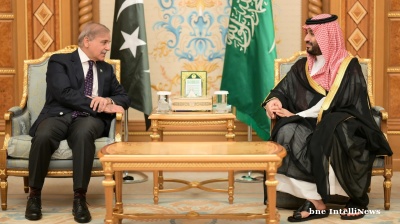India has emerged as a crucial supplier of high-tech components to Russia, filling the gap left by Western companies that pulled out following sanctions imposed over Moscow’s 2022 invasion of Ukraine. Leveraging new trade arrangements, India’s exports have surged, particularly in dual-use technologies that can allegedly serve both civilian and military applications.
Since 2022, Russian firms have turned to Indian suppliers for a range of critical components, including automotive parts, aircraft components, and electronic equipment. Russia’s Ministry of Industry and Trade, seeking to circumvent Western restrictions, has actively engaged Indian firms to supply goods previously sourced from Europe and the US.
These include engine parts, communication systems, and electronic modules—items that are essential not only for civilian industries but also have military applications. Trends indicate that trade in these sectors, once minimal, has increased substantially over the last two years. Russia’s stockpile of Indian Rupees, accumulated through its burgeoning oil trade with India, has facilitated these transactions. Notably, Russia has been using its surplus of Indian rupees believed to be approximately INR8.5 trillion ($102bn) to purchase goods that can no longer be sourced from the West due to export controls.
One reason for the growth in trade is that Russia, facing increasing isolation, has been forced to adapt by seeking alternative suppliers in friendly markets. India, maintaining its neutral stance on the Ukraine conflict, has avoided directly supporting Western sanctions, instead opting to strengthen its economic ties with Russia. Indian companies have capitalised on this, expanding their reach in sectors like electronics and machinery.
The trade dynamic has also been supported by a smoother settlement system between India and Russia. According to Anatoly Popov, Deputy CEO of Russia’s Sberbank as quoted by TASS, nearly 90% of transactions between the two countries are now completed within hours, showing a marked improvement over Russia's dealings with other nations, including China. Popov mentioned that efforts to eliminate the rupee surplus issue have been largely successful, and exports to Russia have surged as a result. India’s deepening ties with Russia, however, have raised concerns in the West, particularly in the US. American officials have cautioned Indian businesses about the risks of secondary sanctions if they are found to be indirectly aiding Russia’s military capabilities. Nevertheless, India has continued to expand its trade footprint in Russia.
During a visit to Moscow, India’s Foreign Minister Subrahmanyam Jaishankar indicated that New Delhi was willing to deepen economic cooperation, despite the geopolitical sensitivities. This move comes as India aims to balance its trade deficit, which has grown due to increased imports of discounted Russian crude. Russia, for its part, is looking to diversify its import sources. In response to Western embargoes, Russian entities have discussed setting up joint ventures with Indian firms to establish manufacturing facilities within India.
These facilities could produce electronics and other goods that are now subject to Western export restrictions. Such collaborations would not only ensure Russia maintains access to critical technologies but also bolster India’s own industrial base and technology sector. In recent months, Indian medical device manufacturers have also been exploring opportunities to expand their market in Russia.
According to the Federation of Indian Export Organisations as cited by Business Standard in an April 2024 report, there is potential to triple exports of medical devices to Russia over the next five years, tapping into sectors that are currently underserved due to Western sanctions. India’s strategic decision to remain a key supplier to Russia highlights a broader realignment in global trade, where traditional partnerships are being reshaped by geopolitical pressures. As Russia’s access to Western technology continues to be restricted, India’s role as a crucial trading partner is likely to grow, raising questions about the global enforcement of sanctions and the future of international trade relations.
News

Trump mistakes Armenia for Albania for the third time at UK press conference
US president says he brought peace to “Aberbaijan” and Albania as he touts his peacemaker credentials during UK state visit.

Iran conducts evening ballistic missile test at Semnan facility
Iran conducts evening ballistic missile test at Semnan range with Sejjil-class system, residents report dramatic launch amid heightened security around military facility.

Pakistan gives Saudi Arabia a landmark Article 5 collective security guarantee
In what is likely to be a game-changing decision, Pakistan, a nuclear power, has given Saudi Arabia an Article 5-like collective security guarantee.
_1758207765.jpg)
Latin America's development gains under threat as one in four live in poverty, UN report finds
UNDP warns of stagnation and rising vulnerability across the region amid "overlapping crises".




